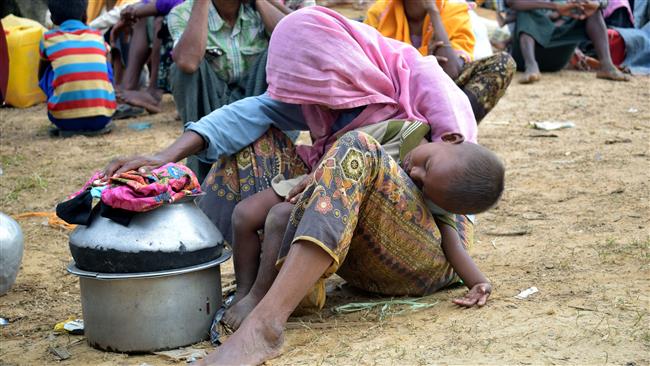
RNA - The engaging of an independent commission, tasked with recommending newer ways of improving the lives of Rohingya Muslims, Myanmar’s most deeply persecuted minority group, carried some weight of diplomacy. In that week, when Myanmar claimed that clashes had broken out between Rohingya militants and security forces, the country's Army responded by doubling down on its attacks against Rohingyas in Rakhine state, killing at least 400 people, only 29 of whom were allegedly militants. What appeared as a window of opportunity to test the findings of the report, which recommended reviewing a citizenship law that revoked the rights of Rohingyas as citizens of Myanmar in 1982, deliberately collapsed at its feet. Instead, a record number of Rohingyas, more than 400,000, were forced to flee to Bangladesh.
The United Nations was supposed to do something about this at that specific time. It didn’t. Now the UN’s High Commissioner for Human Rights Zeid Ra’ad Al Hussein says he denounces the government’s cynical ploy to only allow refugees who could produce proof of nationality back into the country. He has condemned the military junta’s strategy to lay landmines along the borders of Bangladesh, warning that the government should “stop claiming that the Rohingyas are setting fire to their own homes and laying waste to their own villages.”
But is this rhetoric enough to stop the ongoing ethnic cleansing campaign? The answer, obviously, is a big no. This recent wave of violence, is in many ways, both old and new. In 1977, when Burmese authorities conducted a set of screenings, called Operation Nagamin (Dragon King), to register its citizens for a national census, almost 200,000 Rohingyas were forced to flee. Although authorities claimed that it was simply screening out foreigners, refugees who primarily fled to Bangladesh, and who were largely Rohingya Muslims, disputed the claims and reported widespread police brutality.
Similarly, this February, four months after a group of Rohingya militants broke into prominence by reportedly killing nine police officers in October 2016, the UN released its first findings of the long standing conflict, laying bear the horrific killings, gang rapes, and “crimes against humanity” committed by Myanmar’s military in its retaliation to the attack. This has been underway fro decades and is no way related to these scarce militant attacks alleged by the Myanmar government in just the last few years.
This gave way to a renewed sense of official consensus that backed the government’s strategy of driving out Rohingya from the country pushed into maximum effect in the last few weeks. In spite of international pressure to rein in violence, the UN is still walking on a tightrope, and is doing nothing tangible to stop the ongoing violence.
That said, the UN is gearing up for the 72nd Session of the General Assembly, when leaders from around the world will convene. They gather at a time where the world faces major threats - from nuclear peril to global terrorism, from ethnic cleansing and inequality to occupation and war of choice. No country can meet these tests alone. But if the world community works together, the UN can chart a safer, more stable course, and that is why this year’s General Assembly meeting is so important.
Among the most pressing issues that is expected to be discussed during the annual meeting is the humanitarian crisis and escalation of violence in Myanmar, which is catastrophic and unacceptable. The General Assembly must call on the Myanmar authorities to suspend military action, end the violence, uphold the rule of law, and recognize the right of return of all those who had to leave the country. The military junta must also grant Rohingya Muslim citizens the right to return and a legal status that allows them to leave a productive life.
This is important, because High Commissioner for Human Rights al-Hussein has just said that the treatment of Rohingya Muslims seems to be a “textbook example of ethnic cleansing.” When asked if he agrees that the Rohingya population is facing ethnic cleansing, UN Secretary General Antonio Guterres also said: “When one-third of the Rohingya population have to flee a country, can you find a better word to describe it?” Unfortunately, he stopped short of describing the atrocities as genocide, instead calling it a “dramatic tragedy.”
Now is the time for the General Assembly and the Security Council to undertake concerted efforts to prevent further escalation of the crisis. Closed-door meetings are never sufficient. There must be a public meeting. Both the General Assembly and the Security Council need to take control of the issue and show that they are really concerned about it. The world is distraught and disturbed about the violence against the Rohingya in Myanmar.
The UN is supposed to be the guardian of international peace and security. This is an international peace and security crisis. It is a nightmare - people are dying, there is destruction, there is no excuse for them to keep sitting on their hands.
847/940